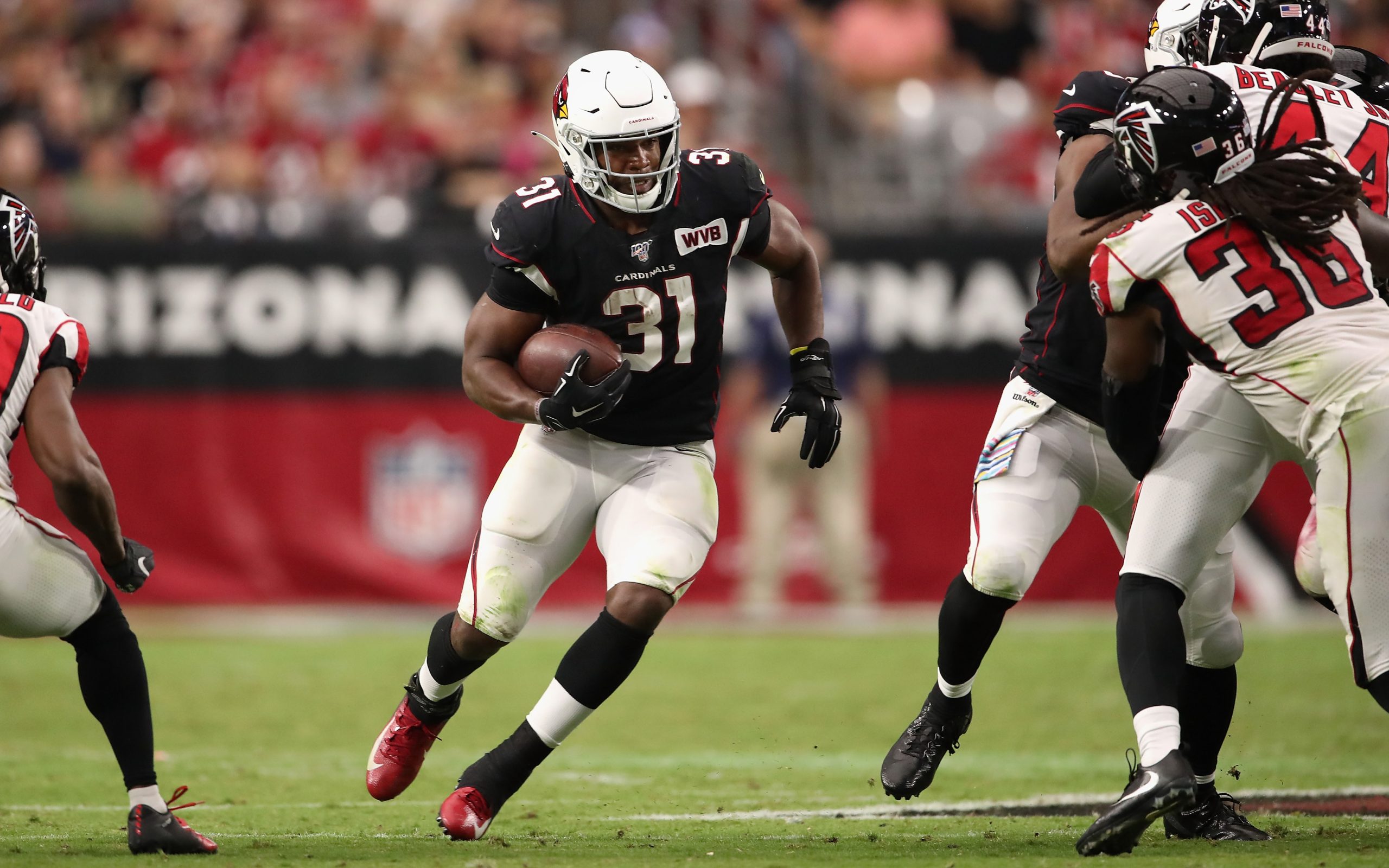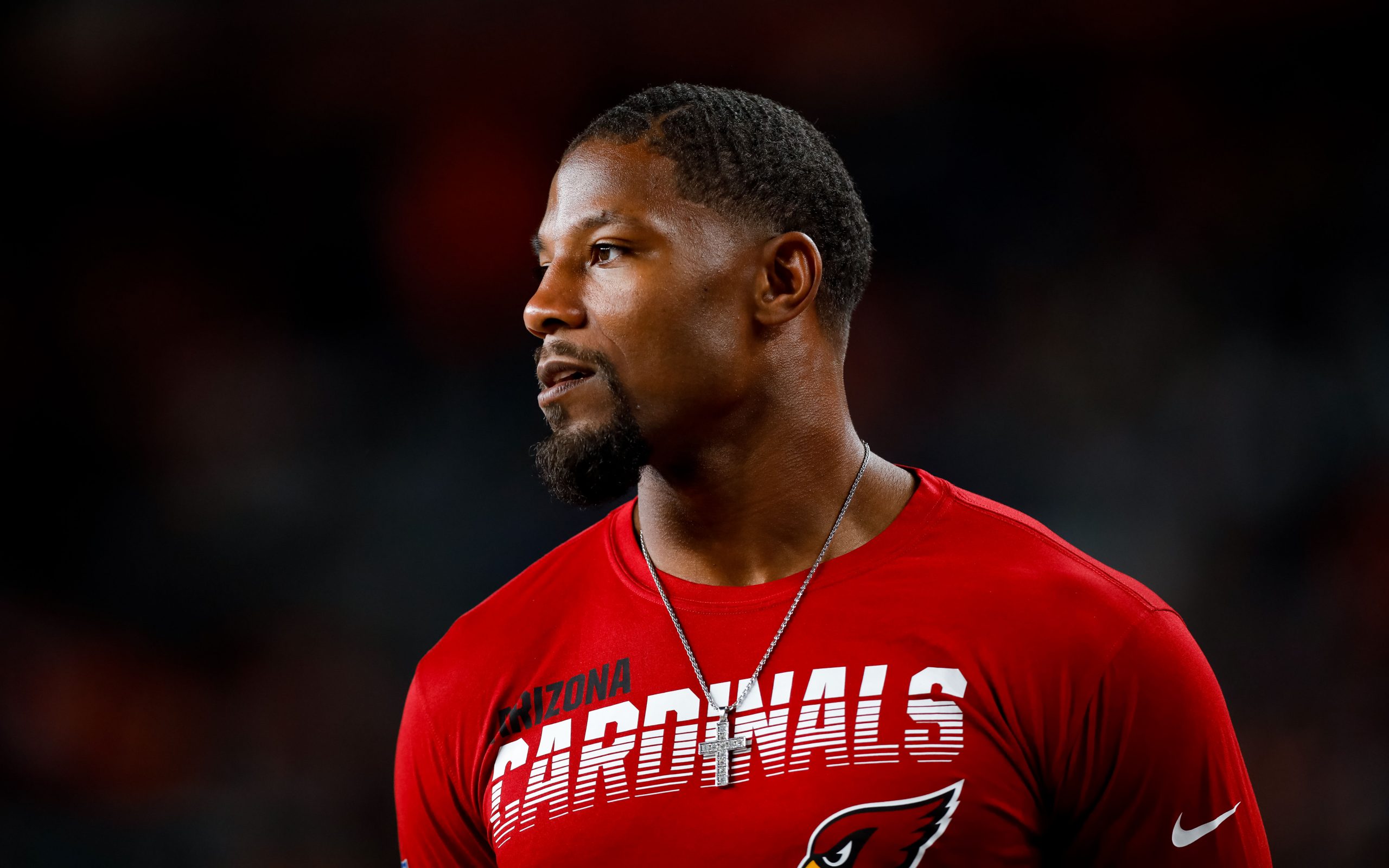TEMPE – The perplexing season of Arizona Cardinals running back David Johnson took another disappointing turn Sunday when the former All-Pro back failed to record a single touch in the Cardinals 36-26 loss to the San Francisco 49ers.
Acting as the team’s backup running back behind newly acquired Kenyan Drake, Johnson was not on the field for 60 of the team’s 69 offensive snaps, marking the fifth straight game in which Johnson, who signed a three-year, $39 million contract earlier this year, was either inactive or saw limited action.
Sunday marked the first time in Johnson’s career that he played in a game without registering a single rushing attempt or pass reception. And what was possibly Johnson’s least productive performance as a pro came in the wake of what Cardinals coach Kliff Kingsbury called Johnson’s best week of practice this season.
It raised questions about whether Johnson has sufficiently recovered from a back injury that caused him to miss two games, although he did not appear on the team’s injury report.
According to author, activist and former NFL punter Chris Kluwe, there are a lot of reasons a still-injured player might want to play when less than full strength. Even for someone as accomplished and well-liked within the community as Johnson, the cutthroat nature of the league can apply pressure on players to return before they’re fully recovered, Kluwe believes.
“If you’re injured, then you’re not on the field and they’re actively looking to replace you,” Kluwe said. “It doesn’t matter how many years you gave them, or what you did, if they can replace you and get a better deal, they will absolutely do it in a heartbeat.”
For Kingsbury, Johnson’s diminished role against San Francisco was the byproduct of a game plan crafted with the hope of taking down the NFC West-leading 49ers. Instead, the plan led to Arizona’s fourth straight loss and a host of new questions surrounding the team’s star running back.
“Week to week, game plans change,” Kingsbury said Monday at his weekly news conference. “It felt like Drake was the hot hand, and we rode with him. But David’s a very good football player, and we’ll try to put him in positions to be successful based upon (the) game plan week to week.”
Kingsbury was quick to correct the characterization of Johnson’s use against the 49ers as a “benching.” Instead, he used the opportunity to slather Drake in praise, while insisting – perhaps to the relief of some fantasy-football enthusiasts – that Johnson will continue to play an important role in the Cardinals offense.
“I wouldn’t use the term benched; Kenyan once again was the hot hand, as I said, and we’re going to play the guy that we feel like gives us the best chance at that time,” Kingsbury said. “Game plans change. Roles will change. But David is a part of this offense and we have to find a way to make sure he’s playing at a high level, and we can give him the football.”
When players get back on the field too quickly, they become prime targets for opponents looking to make a statement, Kluwe said. And because a player’s ailments are detailed in injury reports, Kluwe said opponents might attack the injured area in an effort to gain a competitive advantage.
“There’s a chance that guys are going to target the area,” Kluwe said. “They probably won’t do it maliciously. But if you know a guy is already a little shaken up, and you have the chance to maybe hit him a little bit harder than you normally would, most guys are probably going to take that opportunity.”
There is also the cultural reality of NFL players trying to play through injuries, often to the detriment of their future health. According to Kluwe, teams will push to get players back on the field quicker than their injuries dictate, with teams coercing players to sign waivers claiming they’re fully healed to absolve the team of guilt.

